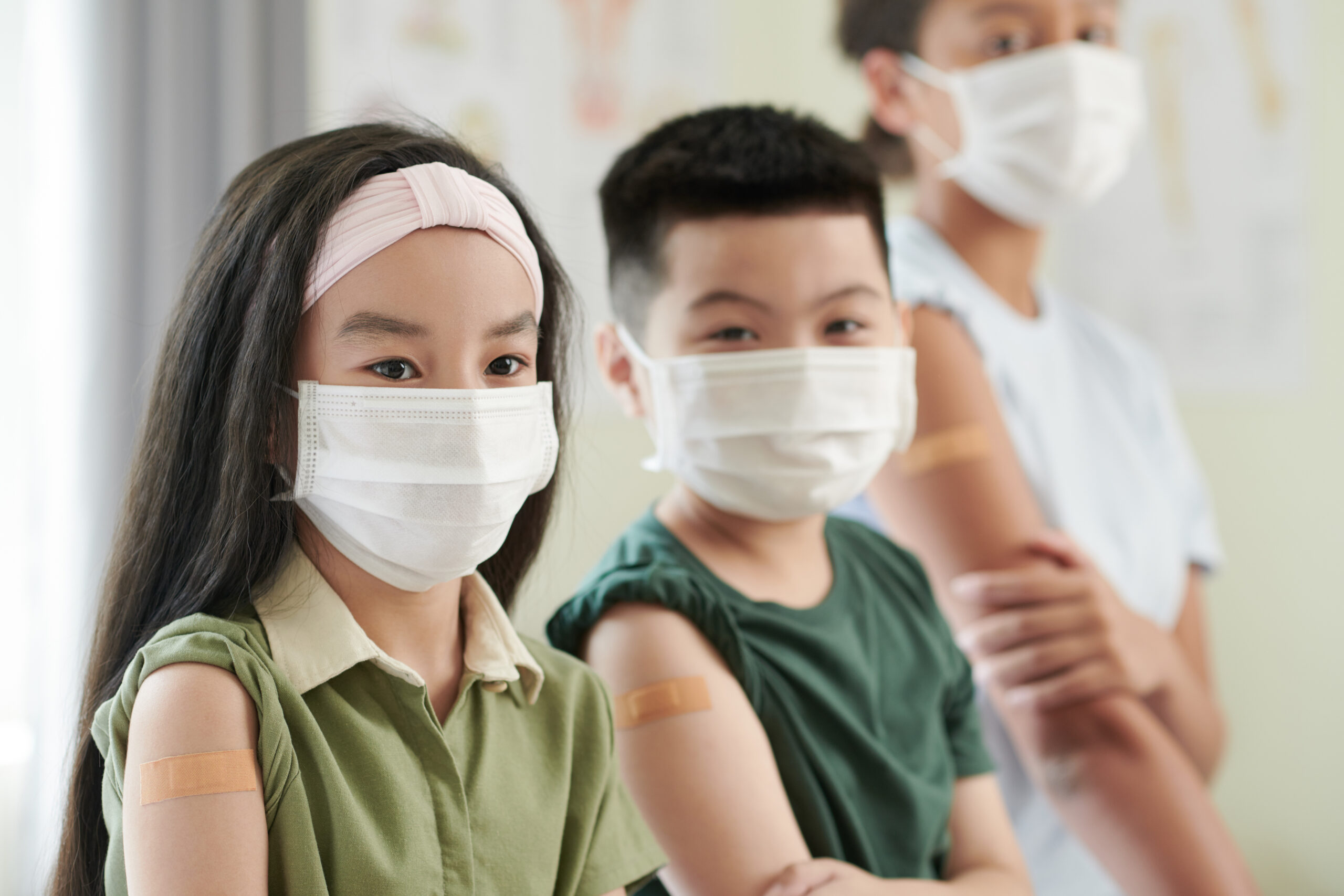Singapore study identifies immunity threshold for protection against COVID-19 in children
Published: 30 Apr 2024

What is the threshold of immune response against SARS-CoV-2 needed to protect against COVID-19 and how many doses of mRNA vaccination are required to reach that threshold?
For future birth cohorts of children who continue to require vaccination, this is one of the key questions that remains in the face of ever-changing variants and COVID-19 becomes endemic, as well as the waning of antibodies with time after each dose.
Researchers answered this question in a joint study conducted by the NUS Yong Loo Lin School of Medicine (NUS Medicine) and Duke-NUS Medical School.
The team enrolled 110 healthy children aged five to 12 years old into the MARkers of Vaccine Efficacy and Longevity in SARS-CoV-2 (MARVELS) study from 20 December 2021 to 8 March 2022, held at the National University Hospital (NUH). All participants received two doses of 10mcg Pfizer/BioNTech mRNA COVID-19 vaccination, 21 days apart.
The team followed up with the participants for one year, during which participants periodically donated blood to test for immune response to the vaccine: antibodies, memory B cells and T-cells.
A proportion of the children received a booster dose five months after completing two doses, according to parental discretion. Parents also performed home Antigen Rapid Tests (ARTs) for their children when COVID-19 was suspected, and reported to the study team when the results were confirmed. ART-confirmed symptomatic SARS-CoV-2 infection was the clinical outcome of interest in this study.
The team found that rather than antibodies, which wane with time and whose protective capacity decrease in the face of variants, other arms of the immune system – T cells and memory B cells – provide durable protection against symptomatic SARS-CoV-2 infection. The amount of T cells and memory B cells are generated after two doses of mRNA vaccination, and their levels were not improved with a third, ‘booster’ dose.
The study also found comparable immune responses in children compared to healthy adults. These findings do not apply, however, to children or adults who are more vulnerable to severe COVID-19, such as older adults and those living with chronic diseases or are immunocompromised. For them, third and subsequent doses of vaccination would still be beneficial. It is important to note that the findings of this study need to be replicated by other researchers, and other evidence, including clinical experience with populations, need to be carefully considered in determining the optimum policy for vaccinations in children and adults.
The study was published in Nature Medicine on 30 April, titled ‘Correlates of protection against symptomatic SARS-CoV-2 in vaccinated children’.
Click here for the media release.

